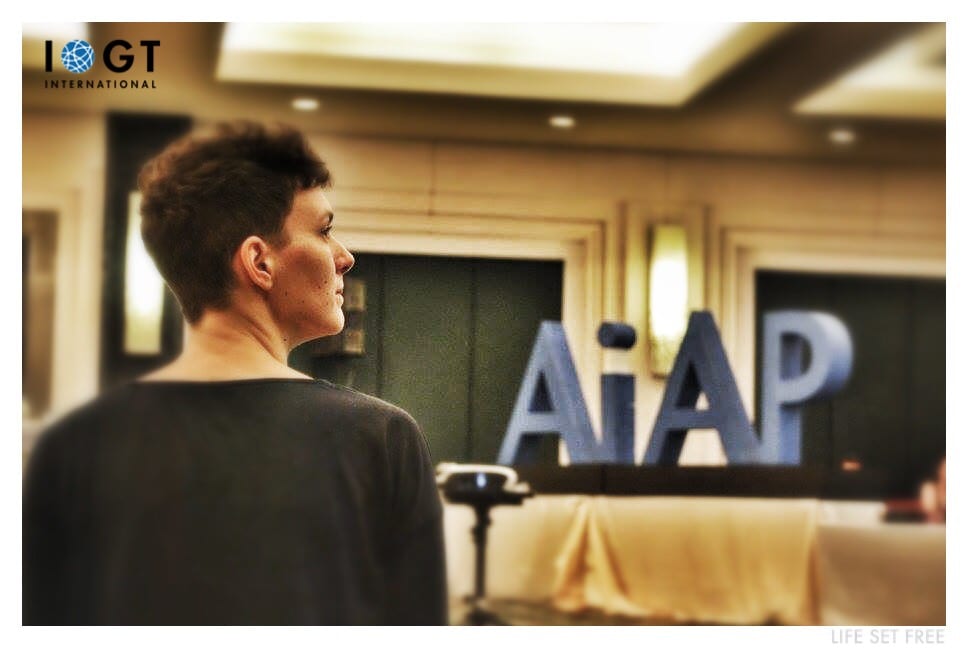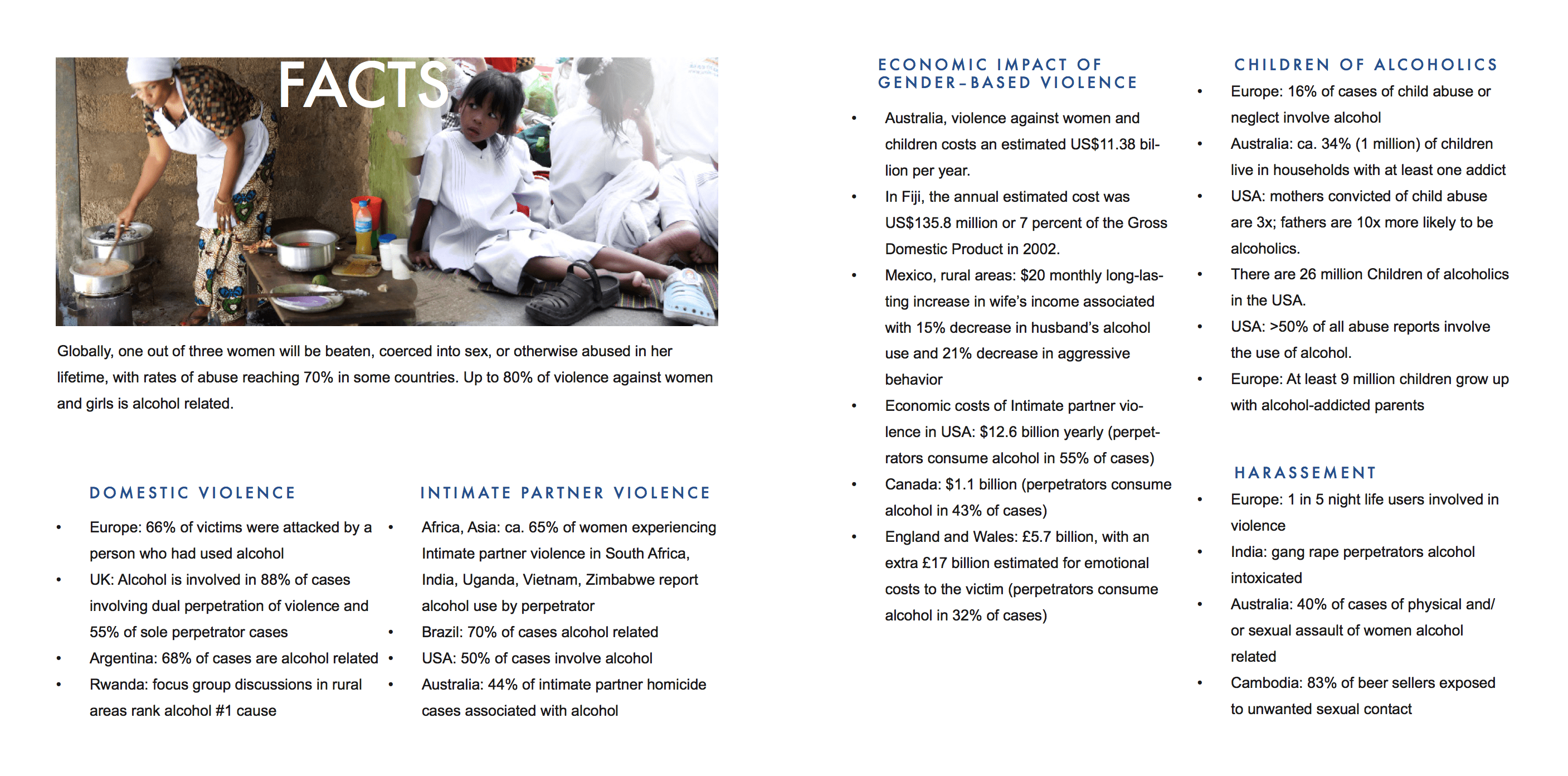Today is November 25th. And I’ve just come home from a morning seminar about alcohol and violence. I was deeply touched by the stories from a Women’s House, located here in Stockholm, that offers protected living for women and girls that are victims of domestic and intimate partner violence. It’s unbearable for me to think of all those women and girls that end up in dangerous and painful situations because of violence -and al too often, alcohol is a factor. Women around the world know that alcohol fuels violence. Now we need to make sure that the women’s rights community joins us in IOGT International and that we together will mobilise decision-makers to implement proven measures that can save women’s lives and that can prevent a great deal of gender-based violence.
Please find below our press release for today.
Violence against women – a global epidemic fuelled by alcohol
Stockholm – International Day for the Elimination of Violence against Women
IOGT International calls on political leaders and the women’s rights community around the world to mobilize political will and to summon all efforts to address the role of alcohol in the global epidemic of violence against women.
One out of three women will be beaten, coerced into sex, or otherwise abused in her lifetime, with rates of abuse reaching 70% in some countries. The costs and consequences of violence against women last for generations.
The harm that women and girls are exposed to, simply because they are female, is unbearable. The violence must stop. We have to realize that violence against women and girls is not inevitable. Prevention is possible – and the time is now, for mobilizing political will to do so,” says Ms. Kristina Sperkova, President of IOGT International.
A major factor in this global epidemic is alcohol. Up to 80% of violence against women and girls can be alcohol related. In Cambodia 83% of beer girls are exposed to unwanted sexual contact. In Rwanda focus group discussions in rural areas showed that alcohol is ranked as the biggest factor in violence. In Brazil 70% of cases of intimate partner violence are alcohol related. The economic costs of Intimate partner violence in the USA amount to $12.6 billion yearly – and perpetrators consume alcohol in 55% of all cases.
Alcohol use, alcohol marketing and associated myths and stereotypes all interplay to form a formidable obstacle to gender equality and freedom for women and girls,” explains Ms. Sperkova.
Alcohol fuels unequal power relations and expectations of more traditional male gender behavior. Alcohol marketing perpetuates images of de-humanized, sexualized and objectified women. Alcohol consumption is used as excuse for anti-social behavior, like gender-based violence.
We call on the Women’s Rights community and the political leaders to join together and address one of the major factors in the global epidemic that is violence against women,” says Ms. Sperkova.
Only when the current harmful alcohol culture and gender norms change do we stand a chance of eliminating gender-based violence. We must stop excusing misconduct and anti-social behavior just because the perpetrator was under the influence of alcohol. And we have to act now to put in place alcohol policies.”
Restrictions of alcohol availability, e.g. higher legal age limits and lesser density of alcohol outlets, protect because alcohol intoxicated females are much more likely to become victims of violence. Most importantly they ensure that fewer men use alcohol, protecting domestic peace and intimate relations. Less alcohol outlets often means less violence.
Restrictions of alcohol affordability, like higher taxes, inspire freedom because they contribute to reducing alcohol consumption. The more expensive alcohol is, the fewer people use it.
Alcohol marketing restrictions and advertising bans put an end to the repetition of prejudices about women. It sets women and girls free from being objectified, sexualized and portrayed as mere tools for men’s pleasure. The density of alcohol advertisments has significant effect on levels of sexual violence against women.
Alcohol free environments increase opportunities for victims of violence to rejoin society and feel safe in doing so. They also promote healthy lifestyles and inclusive environments.
Evidence tells us: Alcohol policy measures are powerful tools for preventing and reducing violence against women and girls. We know by now that alcohol policy measures are high-impact and cost-effective tools to promote gender equality and Women’s Rights,” say Ms. Sperkova.
Let’s resolve, together, to transform what we know into what we do – for the most comprehensive approach to making lives better for billions of women and girls.”
—
Evidence sources:
WHO report: Intimate Partner Violence and Alcohol
Briefing: Alcohol and violence, UK

